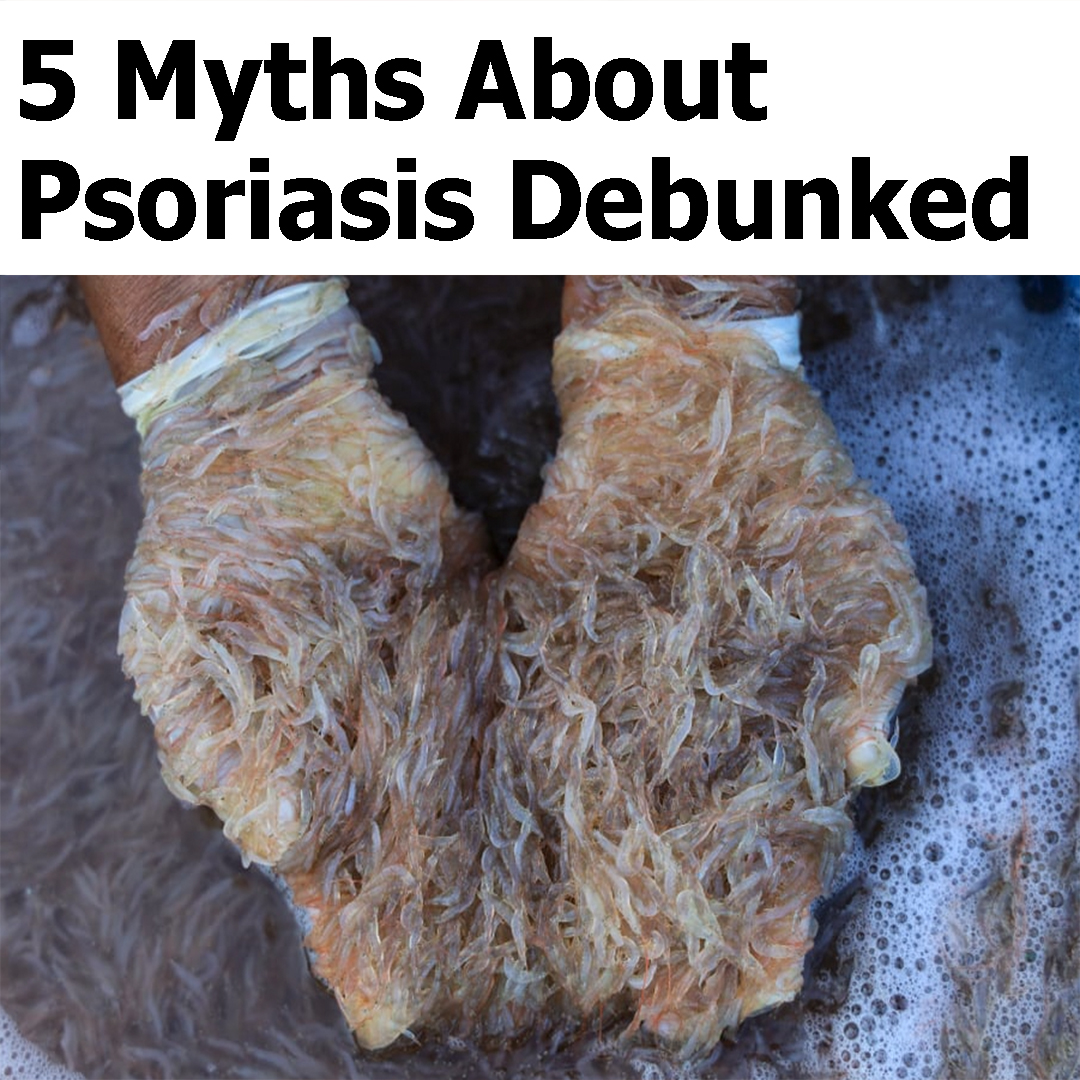Psoriasis is a skin condition that causes red, inflamed patches to form on the skin. These patches can be itchy and painful, and they can sometimes bleed. Psoriasis is a relatively common condition, affecting around 2% of the population. Despite its prevalence, however, there are a lot of myths and misconceptions about psoriasis. In this blog post, we’ll dispel some of those myths and give you the facts about psoriasis.
Myth #1: Psoriasis is contagious
This is one of the most common myths about psoriasis, but it’s actually not true. Psoriasis is not contagious and you cannot catch it from other people. It is caused by a malfunction of the immune system, which leads to the overproduction of skin cells. Although there is no cure for psoriasis, there are many treatments that can help control the symptoms.
Myth #2: Psoriasis is a sign of poor hygiene
Another common myth about psoriasis is that it is caused by poor hygiene. This is not true – in fact, psoriasis has nothing to do with hygiene at all.
Psoriasis is not caused by poor hygiene, but it is a skin condition that may be aggravated by poor hygiene. People with psoriasis should make sure to keep their skin clean and dry to help minimize the symptoms of the disease. Even though psoriasis is not caused by poor hygiene, keeping your skin clean and dry can still help you feel better if you have the disease.
Myth #3: Psoriasis is a serious condition
While psoriasis can be uncomfortable and sometimes embarrassing, it is not a life-threatening condition. It does not cause any long-term health problems and it is not associated with any other diseases or conditions.
Psoriasis is a chronic skin condition that can be both uncomfortable and embarrassing. While it is not a life-threatening condition, it can cause long-term health problems if not treated properly. It is not associated with any other diseases or conditions, but can be uncomfortable and sometimes embarrassing.
Myth #4: You have to live with psoriasis forever
This is another common myth about psoriasis – that once you have it, you have to live with it for the rest of your life. However, this is not always the case. Many people find that their psoriasis goes into remission at some point, either temporarily or permanently.
Many people believe that once you have psoriasis, you have to live with it for the rest of your life. However, this is not always the case. Many people find that their psoriasis goes into remission at some point, either temporarily or permanently. There are several things you can do to help increase the chances of your psoriasis going into remission:
1) Follow your doctor’s treatment plan closely.
2) Make sure to get plenty of exercise and get outdoors as much as possible.
3) Eat a healthy diet filled with fruits and vegetables.
4) Reduce stress levels as much as possible.
5) Keep your skin moisturized.
Myth #5: There’s no cure for psoriasis
This may have been true in the past, but there are now several effective treatments for psoriasis. Treatment options vary depending on the severity of your condition and how much it affects your day-to-day life. There are also many natural remedies for psoriasis that you may want to try.
While there is no known cure for psoriasis, there are many treatment options available that can help control the symptoms. Treatment options vary depending on the severity of your condition and how much it affects your day-to-day life.
If you have mild psoriasis, you may be able to treat it with over-the-counter medications or home remedies. Some people find relief from using corticosteroid creams or ointments, coal tar treatments, or ultraviolet light therapy. More severe cases of psoriasis may require prescription medications, such as topical or oral steroids, vitamin D analogues, or immunosuppressants.
There are also many natural remedies for psoriasis that you may want to try. Some people find relief from using emu oil, aloe vera gel, fish oil supplements, or apple cider vinegar. If you are interested in trying a natural remedy, be sure to talk to your doctor first to make sure it is safe for you to use.
While there is no cure for psoriasis, there are many treatment options available that can help control the symptoms. With the right treatment plan, you can manage your psoriasis and lead a normal, healthy life.

